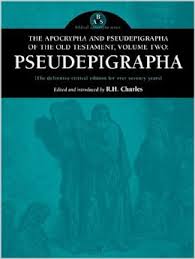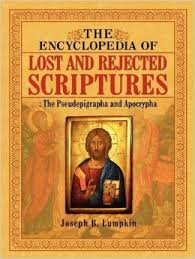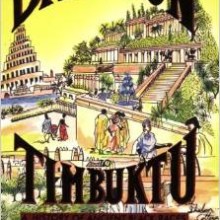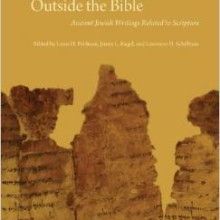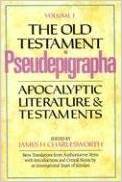The terms “apocrypha” and “pseudepigrapha” refer to two somewhat vaguely-defined groups of ancient writings. Ordinarily the “Apocrypha” are fourteen books or parts of books found in a section by themselves in Protestant Bibles. The Pseudepigrapha are other ancient books related to the Bible but not included in it. This division breaks down readily; most of the Apocrypha are included in Roman Catholic and Eastern Orthodox Bibles, and some of the Pseudepigrapha appear in the Ethiopic Bible. This volume mainly contains the Pseudepigrapha–although it omits III Maccabees and includes IV Ezra, the latter being part of the Apocrypha.As this collection was originally published in 1913, it does not take account of later scholarship and discoveries. Other than that minor limitation, the work has proved its worth and continues to be useful to this day. Charlesworth’s Old Testament Pseudepigrapha is a larger and more current collection, but it by no means entirely supplants Charles.
This volume contains translations and commentaries on **Jubilees, **the Letter of Aristeas, **the Books of Adam and Eve, **the Martyrdom of Isaiah, *I Enoch, *Testaments of the Twelve Patriarchs, (selected) *Sibylline Oracles, *The Assumption of Moses, *II Enoch, *II Baruch, *III Baruch, *IV Ezra, the **Psalms of Solomon, **IV Maccabees, Pirke Aboth, **Ahiqar, and Fragments of a Zadokite Work. (Titles with a single star appear in the first volume of Charlesworth; those with two stars appear in the second.)
Certain works–most notably II Enoch, the Assumption of Moses, and the Sibylline Oracles–appear here in an abbreviated form. The most significant omission, perhaps, is the Odes of Solomon.
